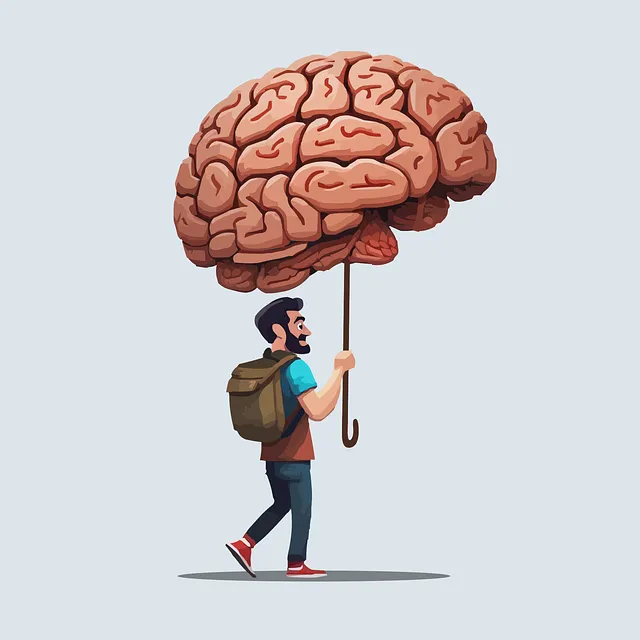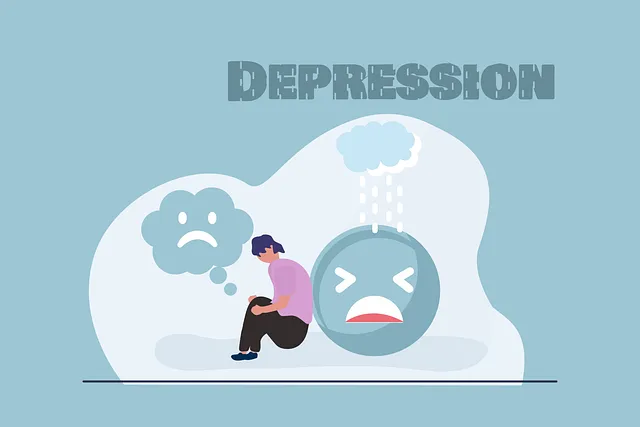Kaiser Permanente's Castle Rock training programs teach specialized mental wellness group facilitation skills, empowering individuals to create supportive environments for peers facing mental health challenges. Facilitators guide discussions, share coping strategies, and foster connections using techniques like Self-Awareness Exercises. These programs integrate physical, emotional, and social aspects for holistic wellness, addressing concerns from stress management to policy analysis. Through ongoing education and practice, facilitators enhance their abilities to create inclusive spaces that promote healing, growth, and resilience within the community.
Mental wellness group facilitation is a powerful tool in supporting individuals navigating mental health challenges. This article explores the art and science of facilitating such groups, focusing on techniques that foster safe, supportive environments. We delve into Kaiser Permanente’s innovative training programs, particularly their Castle Rock initiatives, which equip facilitators with diverse curricula and methodologies to enhance mental wellness outcomes. By examining key roles, strategies for open communication, and creative activities, we aim to empower facilitators in making a profound impact on their clients’ journeys towards better mental health.
- Understanding Mental Wellness Group Facilitation
- – Definition and significance of group facilitation in mental health support
- – Key roles and responsibilities of a facilitator
Understanding Mental Wellness Group Facilitation

Mental wellness group facilitation is a specialized skill that empowers individuals to support their peers in navigating mental health challenges. It involves creating a safe, supportive environment where participants can share experiences, learn coping strategies, and foster connections. Facilitators play a crucial role in guiding discussions, encouraging active participation, and facilitating meaningful interactions. By using techniques such as Self-Awareness Exercises, facilitators help group members explore their thoughts, emotions, and behaviors, fostering a deeper understanding of their mental health.
The Kaiser Permanente training programs in Castle Rock emphasize the importance of holistic mental wellness approaches, integrating physical, emotional, and social aspects. These programs equip facilitators with tools to address various mental health concerns, from stress management and mood regulation to advocacy and policy analysis. Through ongoing education and practice, facilitators enhance their abilities to create inclusive spaces that promote healing, growth, and resilience among group members.
– Definition and significance of group facilitation in mental health support

Group facilitation plays a pivotal role in enhancing mental health support, offering a dynamic and collaborative approach to care. This technique involves guiding small groups through discussions, activities, and exercises designed to foster open communication, build community, and promote healing. In the context of Kaiser Permanente training programs in Castle Rock, facilitators are equipped with essential skills to create safe spaces where individuals with diverse mental health backgrounds can connect, share experiences, and learn from one another.
By facilitating these groups, professionals contribute to meaningful initiatives such as Trauma Support Services, Compassion Cultivation Practices, and Mental Illness Stigma Reduction Efforts. Through interactive sessions, facilitators encourage participants to develop coping strategies, cultivate empathy, and challenge negative perceptions associated with mental illness. This collective approach not only enhances the overall well-being of group members but also fosters a sense of belonging and empowerment within the community.
– Key roles and responsibilities of a facilitator

The role of a mental wellness group facilitator is multifaceted and crucial to the success of any support or therapeutic session. In the context of Kaiser Permanente training programs in Castle Rock, facilitators are responsible for creating a safe, inclusive, and non-judgmental environment where participants can openly discuss their experiences. They act as guides, ensuring that discussions stay on track while fostering a sense of community among members.
A key responsibility is to facilitate active participation using effective communication techniques. This involves encouraging all group members to share, using Stress Reduction Methods to promote calm and open dialogue, and facilitating meaningful interactions that enhance mutual understanding. Additionally, facilitators play a vital role in tailoring sessions to meet the diverse needs of the group, incorporating Confidence Boosting activities to empower individuals in managing their mental health journey. They also ensure smooth logistics, including setting agendas, managing time, and organizing resources for the Stress Management Workshops Organization.
Mental wellness group facilitation plays a pivotal role in enhancing therapeutic outcomes, as evidenced by successful programs like those offered by Kaiser Permanente. In Castle Rock and beyond, these techniques empower facilitators to create supportive environments, fostering meaningful connections and encouraging active participation among group members. By understanding the core roles and responsibilities outlined in this article, aspiring facilitators can effectively navigate complex dynamics, ensuring every voice is heard and every individual feels valued—essential elements for successful mental health support.






